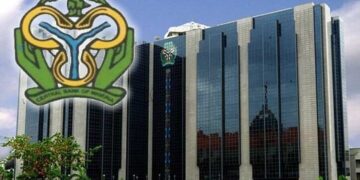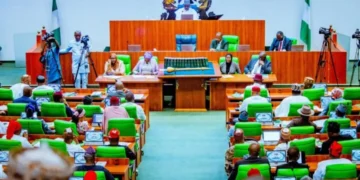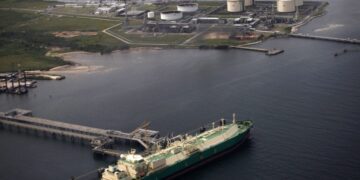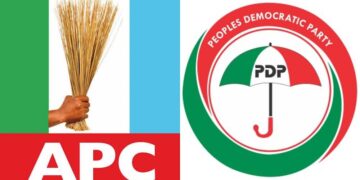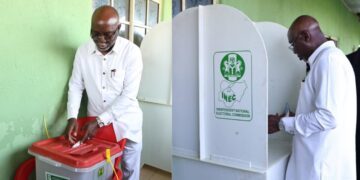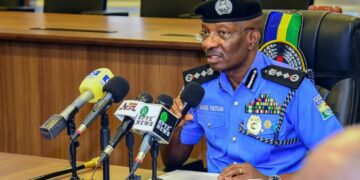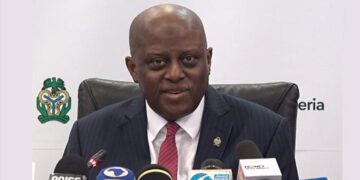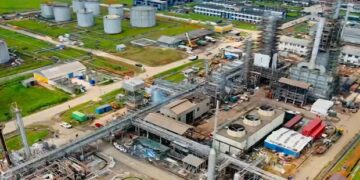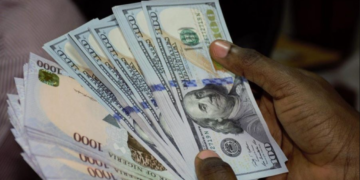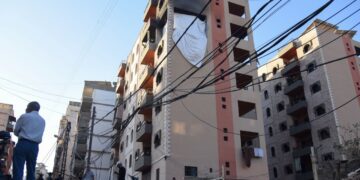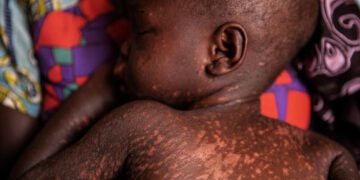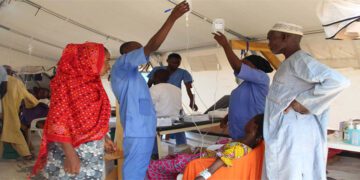The Central Bank of Nigeria (CBN) raised the benchmark interest rate, the Monetary Policy Rate (MPR) to 27.50 per cent from 27.25 per cent on Tuesday.
The CBN governor, Dr Olayemi Cardoso, disclosed this at the end of the 298th Monetary Policy Committee (MPC) meeting in Abuja.
He states, “The committee was unanimous in its decision to tighten the policy further and thus decided as follows: Raise the MPR by 25 basis points to 27. 50 percent from 27. 25 percent.
“Retain the Asymmetric Corridor around the MPR at +500 / -100 basis points. Retain the Cash Reserve Ratio, CRR of Deposit Money Banks at 50 percent and Merchant Banks at 16 percent; and retain the Liquidity Ratio at 30 percent.”
Why we raised interest rate again
Cardoso said the committee decided to further hike the rate because of the renewed inflationary pressures as the headline, food and core measures rose Year-on-Year last month, citing the latest report of the National Bureau of Statistics (NBS).
“The committee was particularly concerned that all three measures inched up on a month-to-month basis. Suggesting persistent price pressures with attendant adverse impact on income and welfare of citizens. Members therefore agreed unanimously to remain focused in addressing price developments,” he emphasized.
Cardoso, held a positive view of CBN policies, maintaining that the increased remittances is a clear indication that the apex bank’s policies under his leadership were achieving desired results.
He said,“The committee noted the improvement in the external sector, reflected in the Current Account surplus, enhanced remittance and capital inflows which have impacted the External Reserves positively. These, therefore, suggest that key policy measures by both the monetary and fiscal authorities are yielding the desired outcomes.”
He also disclosed that the nation’s External Reserves stood at $40. 88 billion as at November 26, 2024, up from $40. 06 billion in as of the end of October 2024.
The Governor however, expressed concern over the persisting exchange rate pressure, reflecting continued high demand in the market, with the MPC urging the bank to explore measures to boost market liquidity.
He added that the Naira had been stable since June and that it was an important parameter for a stable, growing economy, adding, “If you measure stability between June and now, it has been stable.”
Cardoso said that there would normally be a time-lag between policy implementation and outcomes and that he was optimistic that greater results would be witnessed in the first quarter of next year.
On other developments, he shared insight that his team was also working hard to ensure that Nigeria was removed from the Grey List of the Financial Action Task Force, latest by early next year.
He said that the removal of Nigeria from that list was key to the success of the anticipated heavy capital flows into Nigeria, through Diaspora Remittances and other funds coming into the country.
He also pledged to announce some initiatives to address the problem of cash shortages across the country, especially, with the yuletide approaching.















